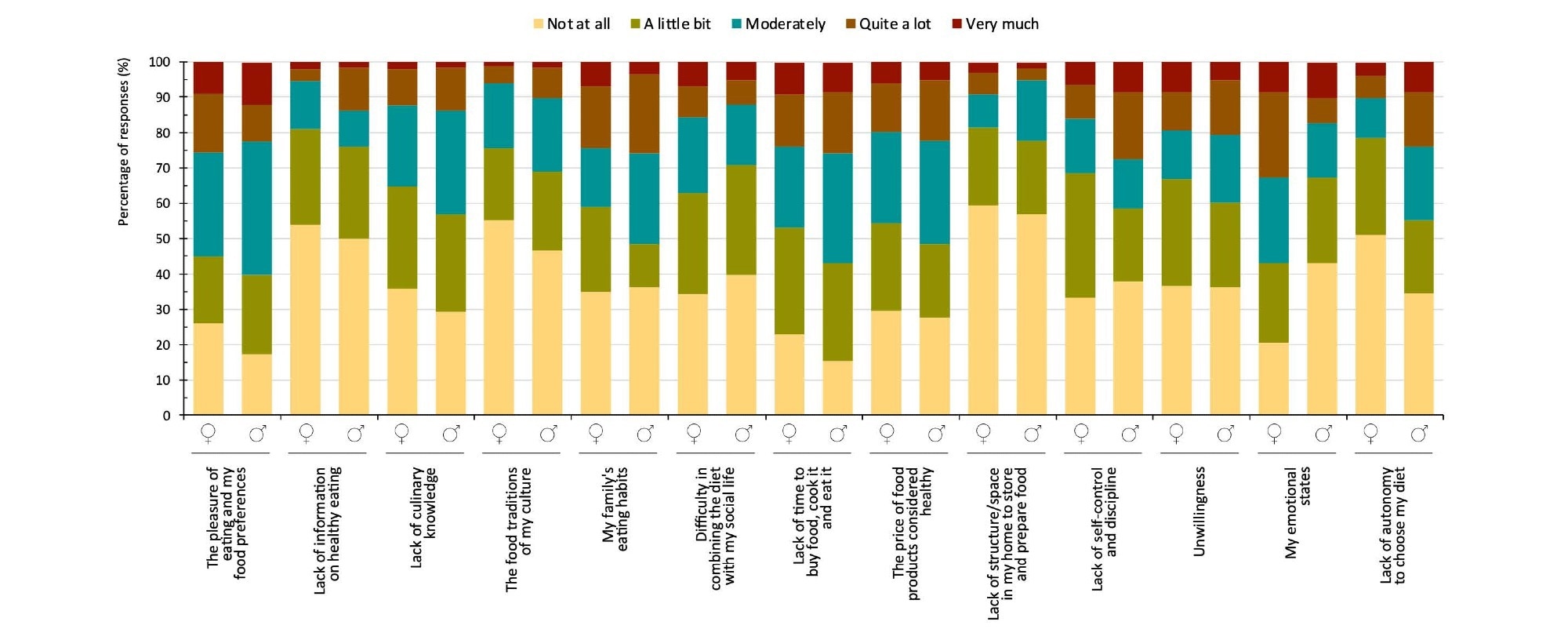They found differences in how males and females, as well as students at different academic stages, defined healthy eating, with the main barriers including familial eating patterns, time constraints, and emotional states, emphasizing the importance of addressing these perceptions in the education of future nutrition and food science professionals.
 Study: What Is Considered Healthy Eating? An Exploratory Study among College Students of Nutrition and Food Science. Image Credit: udra11 / Shutterstock
Study: What Is Considered Healthy Eating? An Exploratory Study among College Students of Nutrition and Food Science. Image Credit: udra11 / Shutterstock
Background
In modern industrialized societies, the discourse surrounding healthy eating has intensified, spurred by concerns over changing population demographics, increased obesity rates, and the prevalence of cardiovascular diseases.
Despite efforts by organizations like the World Health Organization (WHO) and governments such as the European Union to promote healthy diets, there is no universal definition of what constitutes a healthy diet, with interpretations varying based on factors such as gender, age, and cultural background.
Healthcare and food-related professionals, including dietitians and food scientists, play a pivotal role in promoting healthy eating. However, their perceptions of healthy eating can vary widely and may influence their practices.
Understanding these perceptions is crucial, particularly during their formative education, to ensure that academic programs adequately address diverse attitudes toward healthy eating.
About the study
This study explored the perceptions and barriers related to healthy eating among undergraduate students in HND and FST programs at a Spanish university.
The study employed an exploratory and descriptive cross-sectional design, combining qualitative and quantitative methodologies to understand college students' perceptions of food and healthy diets.
A convenience sample of male and female students enrolled in HND and FST programs at the University of Barcelona was selected. Data collection involved a questionnaire based on previous research and focus group discussions.
Thematic analysis was conducted on focus group transcripts to identify key themes. The finalized questionnaire was administered online, yielding 300 complete responses.
Statistical analysis, performed using SPSS, revealed significant differences in perceptions between gender and academic year groups.
Descriptive statistics, such as means and standard deviations, were utilized, and chi-square tests were employed to determine significant differences in response frequencies at a 5% significance level.
Findings
The study revealed several key findings regarding college students' perceptions of health, body, and diet. The majority of students perceived themselves as being in good health and acknowledged the impact of food consumption on health.
While most students considered their diets healthy, differences emerged between HND and FST students regarding the ease of maintaining a healthy diet and the importance of personal will in doing so.
HND students tended to believe their diets were healthier and easier to maintain compared to FST students, who placed more emphasis on personal willpower. Moreover, significant differences were observed between gender and academic year groups in perceptions of health, body image, and barriers to adopting a healthy diet.
 Barriers to healthy eating according to gender.
Barriers to healthy eating according to gender.
Qualitatively, students emphasized the importance of variety, balance, moderation, and personalization in healthy eating, often associating it with a Mediterranean dietary pattern and considering it beyond mere adherence to nutritional guidelines.
However, some FST students highlighted a perceived conflict between healthy eating and personal pleasure, suggesting a dichotomy between health and enjoyment in food choices.
Quantitatively, statistical analysis revealed differences in the importance attributed to various factors of healthy eating between HND and FST students and across different academic years.
Additionally, significant gender differences were found in perceptions of barriers to adopting a healthy diet, with emotional states and autonomy to choose one's diet being more influential for women, while lack of autonomy was more influential for men.
Overall, the study underscores the complexity of perceptions surrounding health, diet, and barriers to healthy eating among college students, highlighting the need for personalized approaches and tailored interventions to promote healthy dietary practices.
Conclusions
The study examines perceptions of healthy eating among HND and FST university students in Spain, highlighting a predominant belief in the healthiness of their diets, particularly among HND students.
It identifies a trend towards individual responsibility in diet choices influenced by societal norms and aesthetic ideals. While both groups prioritize balance and variety, FST students emphasize fresh and natural foods, while HND students value pleasure in eating.
Barriers to healthy eating include family habits, time constraints, and emotional states. The study suggests the need for critical examinations of attitudes during student training and the development of strategies addressing environmental and individual factors.
However, limitations include a single institution sample and potential bias in data collection methods, suggesting a need for broader, more diverse research approaches in future studies.
Journal reference:
- What is considered healthy eating? An exploratory study among college students of nutrition and food science. De Moraes Prata Gaspar, M.C., Soar, C., Aguilera, M., Gomez, M.C., Celorio-Sardà, R., Comas-Basté, O., Vidal-Carou, M.C. Nutrients (2024). DOI: 10.3390/nu16091365, https://www.mdpi.com/2072-6643/16/9/1365